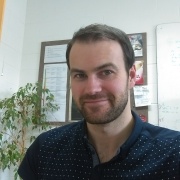Aims: Peer education has considerable popularity as a health promotion approach with young people. However, evidence of what young people actually do as peer educators and how they are received by their peers is limited. This presentation will introduce findings from a national process evaluation of ASSIST (A Stop Smoking in Schools Trial) to explore the perspectives of young people, aged 11-13, selected by their peers to become peer supporters, tasked with disseminating non-smoking norms among their year group.
Design: Mixed method study involving a before and after school survey (n=2166) and in-depth interviews, paired interviews, mini focus groups, observation with school staff, trainers, students, policy and commissioning leads (n=101).
Setting: Twenty secondary schools across Scotland.
Findings: Feedback was positive regarding the wider opportunities that becoming a peer supporter held for students, with a recognition that the benefits of taking part in ASSIST were not restricted to smoking prevention. Opinion was mixed regarding peer supporters ‘ motives and suitability to fulfil the role and the extent of message diffusion within their year. Student feedback suggested that friendship groups may have been more established in the older students. Levels of confidence to initiate conversation varied and there was a perception that message diffusion extended beyond the school year into wider social networks.
Conclusions: ASSIST is a well-received programme with additional benefits for peer-supporters that extend beyond smoking prevention to include transferable life skills. However, there was uncertainty regarding how much opportunity there was for students to engage with their peers and the impact this could have on already low smoking prevalence rates.
Co-Authors
Fiona Dobbie, Institute for Social Marketing, University of Stirling Jennifer McKell, Institute for Social Marketing, University of Stirling Nadine Dougall, Napier University James White, Cardiff University Rona Campbell, University of Bristol Amanda
Conflicts of interest:
No conflict of interest
